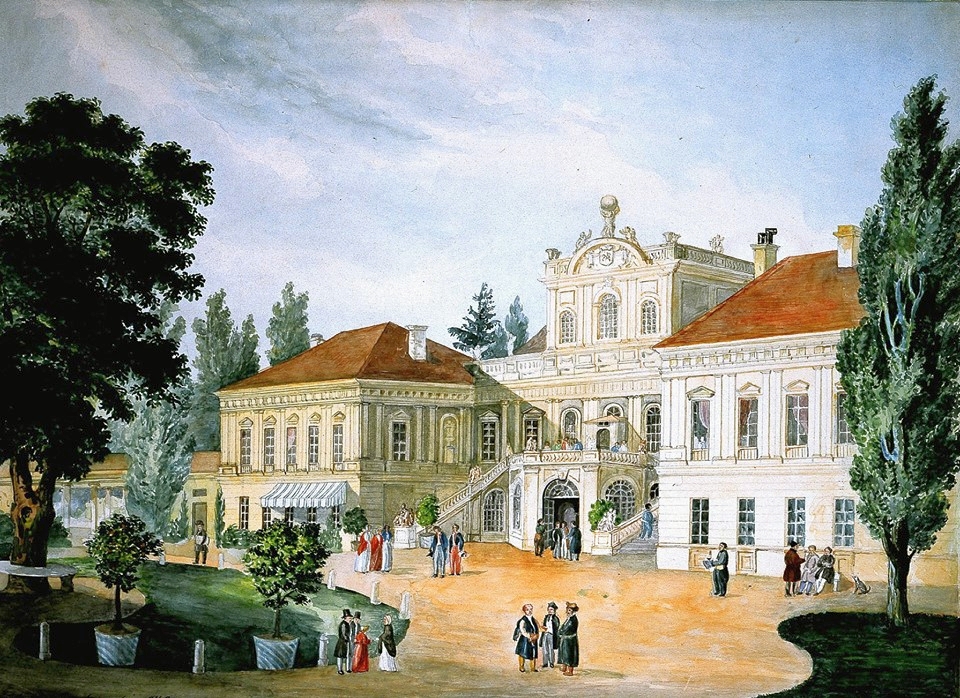Three hundred years ago, a new political era began in Poland. A party was formed whose aim, apart from gaining and maintaining power, was to westernise the state. The Czartoryski family and its allies wanted to transform the consciousness of their compatriots, make radical changes in education, the judiciary, finance and the military, as well as to reorganise government and parliament. It was a task worthy of Hercules. The reforms upset the status quo, provoking violent resistance from the magnate coteries, the conservative nobility and the Polish-Lithuanian Commonwealth’s neighbours. The game played by the leaders of the Familia was risky: their actions set in motion a chain of events that could lead either to the revival of the Polish-Lithuanian state or to its annihilation.
by Wiesław Chełminiak
Izabela’s French disease
The Czartoryskis traced their lineage back to one of the sons of the Lithuanian ruler Gediminas, which – in addition to their kinship with the Jagiellonian dynasty that ruled in the Commonwealth from 1386 to 1572 – gave them the right to use the title of duke. They had properties in Volhynia and were famous for their piety. They were Orthodox for a long time, but converted to Catholicism at the end of the 16th century, most probably for the sake of their career. In terms of wealth, they belonged to the middle class – they were far from such greats as the Radziwiłł or Potocki families.

Like the Austrian Habsburgs, they owed their rise to advantageous marriages. Mikołaj Jerzy married the sole heiress of the Korecki fortune, and in 1633 was the first of the Czartoryskis to become a senator. His son, Michał Jerzy, brought a courtesan of King Władysław IV to the altar, thus saving the monarch from trouble and earning his gratitude. Kazimierz Florian, Michał Jerzy’s brother, went the furthest – he became Primate.
The advancement of the family was somewhat hampered by the division into two genealogical ‘lines’, named after the main seats: that of Klevan and that of Korets. The princes of the former line returned to the top league thanks to Izabela Elżbieta Morsztyn. An energetic and well-read lady, she easily managed to wrap her phlegmatic husband Kazimierz Czartoryski around her finger. She created the first politico-literary salon in Warsaw, which became the germ of a party. A rarity back then, she personally brought up her children cultivating exuberant ambitions in them.
The godmother of the Familia made some mistakes: she inherited an incurable Francophilia from her father, who died in Paris. Meanwhile, the Bourbons were far away, and from the end of the 17th century it was the closest neighbours who decided about who sat on the Polish throne. Anointed at Versailles, Prince of Conti stood no chance against Frederick Augustus I Wettin, Prince of Saxony, supported by Vienna and Moscow. Stanisław Leszczyński lost the crown when the winning streak of his protector, the Swedish ruler, came to an end. An attempt at a comeback made years later had no chance of success, as Austria and Russia regarded Stanisław, now father-in-law to Louis XV, as a French puppet.
The Familia learned a brutal lesson in geopolitics three times, but came back stronger after each defeat. Distrusting the magnates, August II Wettin relied on the young Czartoryski at the end of his reign. However, it was too early to implement his plan for the repair of the Commonwealth. The opposition, not without encouragement from neighbouring powers, paralysed the Sejm, breaking it off even before its Speaker was elected.
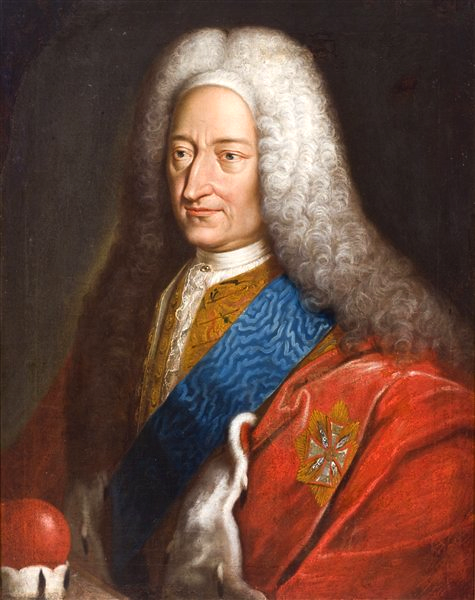
The secret of a second
Izabela strengthened the influence of the Familia by making a match between her youngest son and Zofia Denhoff. It was not easy: to win the hand of that disgustingly rich and capricious lady, August had to duel with another admirer. His brother, the Lithuanian deputy chancellor Fryderyk Michał, married Eleonora Waldstein connected to the Saxon court. The eldest and least able, Teodor, destined for the clergy, became Bishop of Poznań, which was also of political significance, as church hierarchs were ex officio members of the Senate. His daughter Konstancja married Stanisław Poniatowski, who was, compared to the Czartoryski family, almost a nouveau riche, but in terms of orientation in public affairs and organisational talent was unrivalled in his generation. The couple’s son, Stanisław Antoni, would become king in the future.
Even during Izabela’s lifetime, Fryderyk Michał, August and Stanisław became the driving force behind the party. The first provided the ideas, the second the means, and the third was responsible for implementation. However, it was easier to modernise the family estates than to reform the state. In Poland, ruined by many years of war, a state of unstable equilibrium was created in the 18th century, pleasing the egoistical nobility but disastrous for the state. The treasury was empty, cities languished, and the armed forces virtually ceased to exist. Parliament was paralysed by the principle of unanimity. The oligarchs benefited the most. None of them, however, was strong enough to impose their will on the others, and they could not and would not cooperate.
The Czartoryskis created a modern political programme, but the rules of the game remained old-fashioned. At that time Poland was ruled by clientelism. Those trusted by the Familia, more or less competent, could always count on positions and lavish pay. The ends justified the means. The princes worked closely with the corrupt First Minister of King August III, Heinrich Brühl. They unscrupulously broke off sessions of the Sejm and local assemblies (Sejmiks) when the competition was gaining the upper hand.
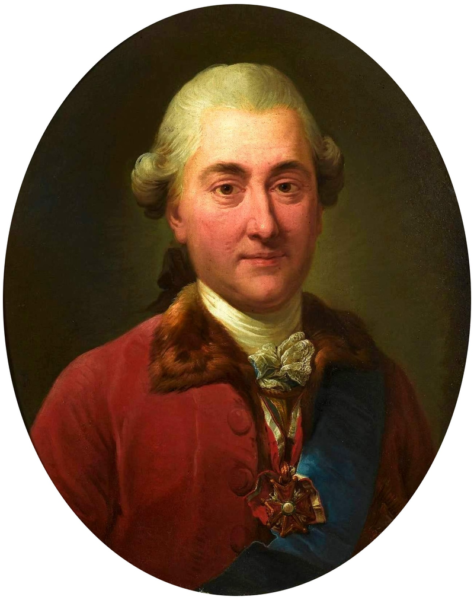
The nobility disliked them for their arrogance and promotion of foreign customs. The conflict between the elites, wishing to put into practice the ideals of the Western European Enlightenment, and Sarmatian homeliness, crucial to Poland’s future, became apparent. The temperature of the dispute was rising. It was believed that the Czartoryskis were even capable of political crime, as was to be proved by the death of Adam Tarło, who was hostile to the Familia. The Voivode of Lublin was killed in a duel with the reveller Kazimierz Poniatowski. There was a widespread rumour, however, that he was killed by his second, who went abroad immediately afterwards.
A vengeful reformer
The power of the Czartoryskis was noticed in Vienna, Berlin and Saint Petersburg. This contrasted with the weakness of the Wettins, whose prestige had suffered considerably after the beating they received from the Prussians during the Seven Years’ War. The plans to make the Polish crown hereditary in the hands of the Saxon dynasty hung in a political vacuum. The Familia intended to take advantage of this and put their own candidate on the throne. One of the conditions for a successful coup is military superiority.
Meanwhile, the Polish army was under the command of hetmans who were hostile to the Czartoryskis. Russia had the largest army in this part of Europe. The tsarina Catherine II, however, did not intend to be a tool in the hands of the Polish princes. She made them wait for an interregnum and imposed a candidate in the person of Stanisław Antoni Poniatowski, whose weak character she had come to know in the times when he was her lover.
The Familia swallowed the bitter pill. The election of the new ruler was conducted smoothly, under the cover of Russian troops. The malcontents were forced into silence or emigration. Reforms, however, were a struggle: persuading the nobility to agree to pay higher taxes proved a real mission impossible. To make matters worse, Saint Petersburg paid a steep price for its help, demanding equal rights for dissidents, led by members of the Orthodox Church, which the tsarina claimed to protect. Poland and Lithuania were to become de jure Russian protectorates.
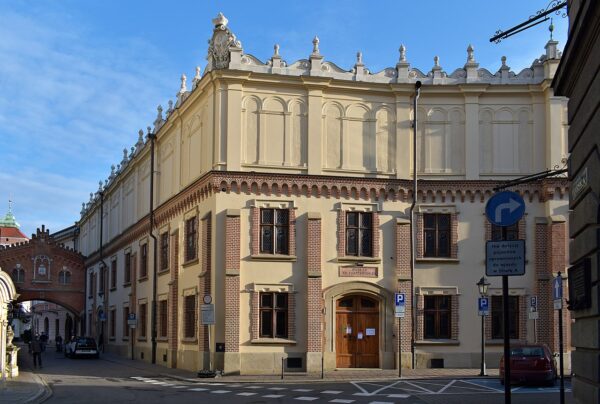
For the Czartoryskis this would have been political suicide, so they deceived Catherine II. Then, impatiently, she dropped her mask: the leaders of the opposition were kidnapped and taken to Kaluga. Bullied, the Sejm agreed to everything, but a revolt broke out in the provinces, which took the Russians as long as three years to put down. The tsarina decided to punish the wayward neighbours. This was the origin of the first partition of the Commonwealth, in which Prussia and Austria willingly participated.
Enlightened people trapped
Today it is a truism to state that the Familia made a mistake in asking for help from the Russian bear. In the realities of the time, however, the idea of westernising the country on the basis of the eastern power seemed to be sensible. Tsar Peter the Great and his successors had no territorial claims to Poland, and were content to keep their neighbours powerless. It was hoped that Catherine II would prove even more generous. The Enlightenment luminaries saw her as an ideological ally. However, the new order that the Stettin (Szczecin)-born princess was introducing in the Romanovs’ state was to serve imperial goals above all. She refused to give the Poles the right to reform. She wanted to subjugate and humiliate them completely.
The Familia was not a monolith. Zofia fought with Konstancja, the Poniatowskis felt disrespected by the Czartoryskis. King Stanisław could hardly stand the guardianship of his uncles. He realised that he was not their dream candidate for the crown, but August’s son, Adam Kazimierz Czartoryski. This polyglot and first Polish Anglophile, however, rejected the temptation to rule and never regretted his decision. When political passions reached their peak at home, he tended to travel abroad. For some time, he even entertained the idea of emigrating.
As soon as he felt more secure on the throne, Poniatowski began to play his own politics. He arranged princely titles for his brothers, and distributed offices among people from outside the Familia circle. His goal of creating a court party, however, kept getting further and further away. Stanisław (who changed his middle name from Antoni to the more majestic August) made a series of wrong choices. He would bet on greedy and duplicitous individuals. He wanted to please everyone, but hardly anyone respected the unstable and profligate ruler. Finances were the king’s Achilles heel, he would go into debt and take money from the Russians (which his uncles criticised, although they did not have a clear conscience in this matter either).
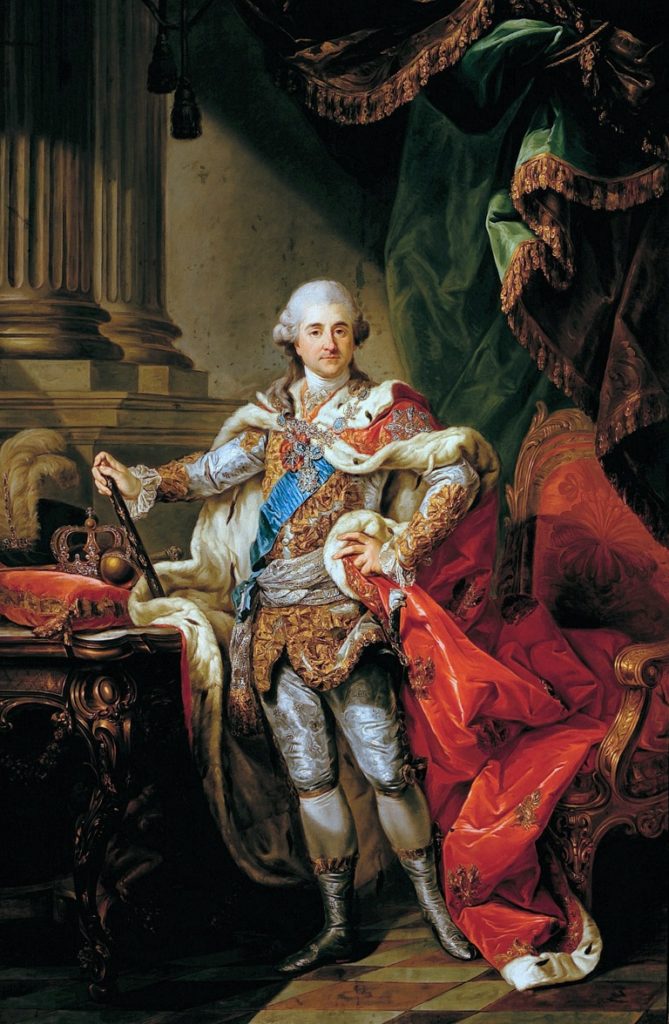
The intrigues of the tsarina’s ambassadors in Warsaw seeking to break up the Familia found fertile ground. Believing that Catherine still had a weakness for him, naive Poniatowski, allowed himself to be persuaded that she was the guarantor of his crown, which his envious compatriots wanted to deprive him of. He even agreed to the stationing of foreign troops in the country. The Czartoryskis, too, fell out of favour. The Bar Confederates ravaged the estates of Fryderyk Michał and August. The tsarina, disgusted by the fact that the Familia did not listen to her orders, threatened the princes with the deprivation of their estates and offices, and even with prosecution.
The party saved itself by corrupting Russian officials. Adam Kazimierz’s wife, Izabela Flemming, became a mistress of ambassador Nikolai Repnin. Poland’s First Partition reflected the futility of such efforts. In 1774, Fryderyk Michał demonstratively resigned from the post of Great Chancellor of Lithuania. August unsuccessfully persuaded his nephew to simply renounce the crown, rather than pursue a capitulationist policy. The idea to bestow it on one of the Habsburgs showed the extreme desperation of the prince. Especially as Poniatowski had no intention of abdicating.
And yet a victory
The deaths of Fryderyk Michał and August closed this chapter. Otto Magnus von Stackelberg, an ambassador, or more precisely Russian governor, was to say that there was no longer anyone in Warsaw to tip his hat to. Now led by August’s son-in-law Stanisław Lubomirski, the Familia became the opposition party. The Poniatowskis and the Czartoryskis had completely diverged due to a certain common troublemaker.
As Marie-Therese Neri (Dogrumov), who preyed on the secrets of the well-born, knew that Elżbieta Lubomirska hated the king, she sold her the news of an alleged conspiracy. Under the influence of his sister, known as the Blue Marquise, Adam Kazimierz was ready to believe that the monarch’s confidants wanted to poison him.
The famous trial ended with the conviction of the con woman and the discrediting of Czartoryski, who – finally discouraged from politics – withdrew to the family’s Puławy estate. This was to the benefit of national culture. The prince was a passionate bibliophile. Personally or through agents, he bought manuscripts and old prints related to Poland all over Europe. His collections gave rise to the Czartoryski Library that exists to this day. Since Adam Kazimierz became the commandant of the Knights’ School, education also became his hobby. He was active in the Commission of National Education which, after the dissolution of the Jesuit Order, took over the supervision of schools in the country. He personally translated textbooks, some of which he wrote himself. It is difficult to overestimate the merits of the would-be king for the national theatre: he personally supervised castings for actors (and especially actresses). Puławy attracted scientists, artists and men of letters and the town was called Polish Athens.
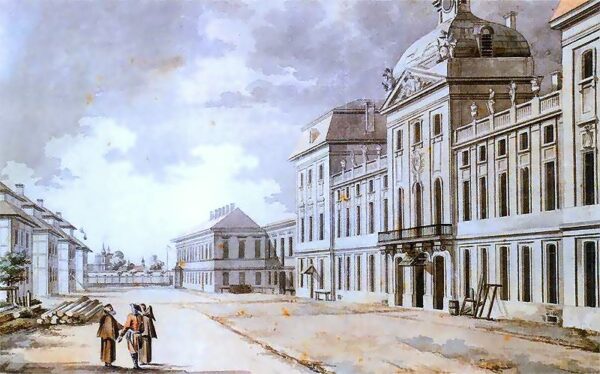
The final act of the nobility-ruled Commonwealth took place seemingly without the participation of the Czartoryskis. However, it was the politicians from the Familia circle who pushed for reforms during the Four-Year Sejm, led to the abolition of the Russian protectorate and the adoption of the Constitution of 3 May, and resisted the intervening tsarist army. Tadeusz Kościuszko, a hero of the American War of Independence and a leader of the first Polish uprising, was a graduate of the Knights’ School and a frequent guest in Puławy.
Catherine II considered the Czartoryskis to be the inspirers of the revolt. She had their residences plundered, and Adam Kazimierz’s two sons were taken hostage in Saint Petersburg. The Polish-Lithuanian state disappeared from the map of Europe, but the seeds sown under the Wettins bore fruit. The Familia created patriotic cadres, leaving behind cultural capital that allowed the national idea to survive the long years of captivity.
Author: Wiesław Chełminiak
Translation: Alicja Rose & Jessica Sirotin
Referenced works: Saga rodu Czartoryskich by Zofia Wojtkowska and Portret Familii by Maria Dernałowicz

